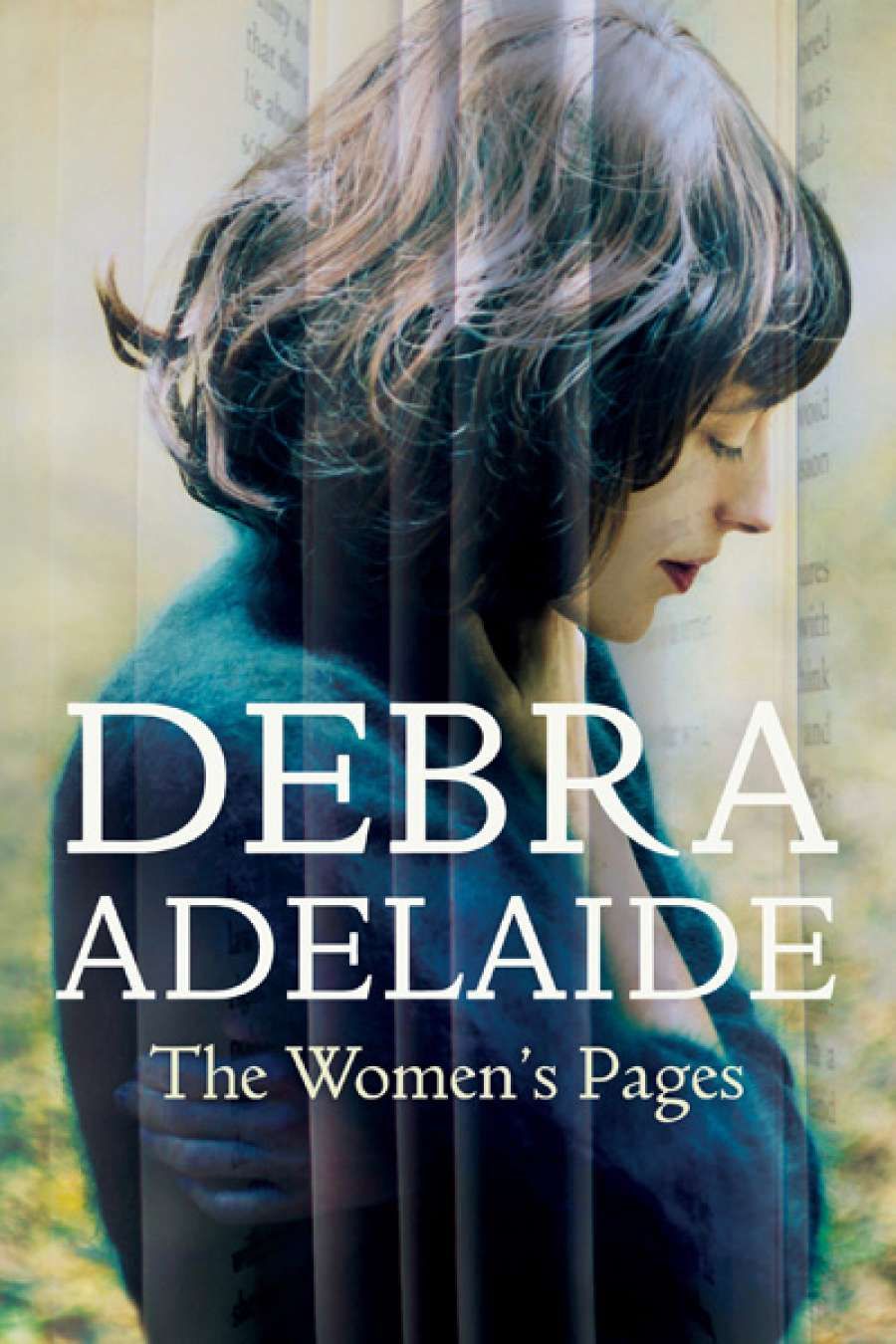
- Free Article: No
- Contents Category: Fiction
- Custom Article Title: Susan Sheridan reviews 'The Women's Pages' by Debra Adelaide
- Book 1 Title: The Women's Pages
- Book 1 Biblio: Picador, $29.99 pb, 293 pp, 9781743535981
Dove's story, by contrast, is mostly about writing. She has entered that obsessed state where she has left her old job in order to write full-time. Her only company is the cat, Vivaldi, inherited from her mother (who was a music teacher). Dove doesn't really like him, but Viv attaches himself to her, as cats are wont to do when people dislike them. She feels responsible for his well-being, and when she plays classical music to calm him, she finds herself missing her mother most acutely: Adelaide is adept at conveying such interactions.
The Women's Pages is a satisfyingly complex novel, which offers the pleasures of a well-told story, a page-turner in fact, and also the pleasures of sharing Dove's experience of writing a story, its terrors and triumphs. She reflects on the art of fiction, which she is learning to practise as she goes. There are some intriguing passages where she describes the processes of creativity – how she would clearly see a scene, and then when she wrote it down she would see it again from a quite different angle. She might dream her character's dreams, or simply retrace her steps, as when she catches the bus to Ashfield.
The continuing presence of Wuthering Heights in Dove's imagination, as she read and re-read it throughout her life, has brought her to this obsession. Brontë's novel has 'infected her imagination', like malaria, returning to 'attack with the fever of unresolved narrative'. It is as if the immersive confusion of reading has taken her over and she feels that it will never let her go, even in death: 'she would never be one of the sleepers in the quiet earth', as she paraphrases the closing lines of Wuthering Heights. (This phrase gave Adelaide the title of the short story that was the seed of this novel, published in her book Letter to George Clooney, 2013.)
'Admirers of her previous novel, The Household Guide to Dying (2008), will be reminded of how well she deals with dying and death in the midst of everyday life'
Emily Brontë and Wuthering Heights pervade Dove's story: in her name (as the novel's epigraph shows) and Ellis's (from Ellis Bell, Brontë's writing name); in characters whose names incorporate those from Wuthering Heights (Nell, Edgar, Linton). The Heathcliff character, Clifford, stays off-stage, as does the Cathy character. She is the mystery figure who only emerges at the end of the story, but she has been haunting the Ellis story throughout, just as Ellis has been haunting Dove, demanding to have her story told.
 Debra Adelaide (photograph by Phillip Klaunzer)
Debra Adelaide (photograph by Phillip Klaunzer)
Dove dreams that she has rescued Ellis from burial in a roadside ditch, 'heaving and dragging her out of the earth' and restoring her to life. She agonises about Ellis, and what she has imagined for her – an early abortion, leaving her husband, abandoning another baby. As the story progresses, however, she realises that although Ellis is her invention, 'she was incapable of altering a thing about her'. She becomes so frustrated by the autonomy of her characters and their unrevealed secrets that she tries to abandon the story, to bury it as she dreamed the dying Brontë buried her unfinished second novel. But the story will not stay buried. It insists that she play the midwife: 'the more she delved into the lives of her characters the more it was about missing or silent women, and the more it seemed it was her job to find them and open their mouths and pull their words out and lay them across the pages.'
Dove begins writing about Ellis as she grieves for her mother. It strikes her that she has invented a motherless heroine, mirroring her own orphaned state. Debra Adelaide has written a powerful story about the loss of the daughter to the mother, of the mother to the daughter. As Adrienne Rich wrote in Of Woman Born (1976), Western culture has no enduring embodiment of this passion and loss, unless it survives in the story of Demeter and Persephone, a myth of the annual restoration of fruitfulness and life. In this fine novel, it is the mother, rather than the daughter, who is restored in the final surprising and satisfying moment.


Comments powered by CComment